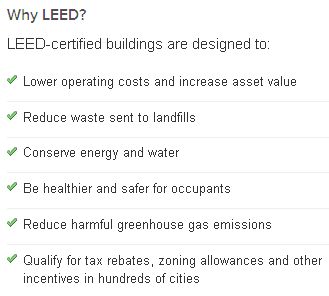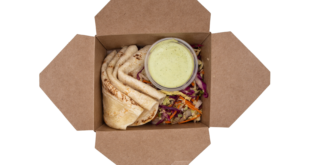 As is the case with most things that are inherently good, the notion of going green has come with a not-so-grand tag-along that’s making the process seem less legitimate. The concept of “greenwashing” – creating, packaging, and selling a few minimal green concepts as a commitment to sustainability – is one that tarnishes the idea of actually going green. In an industry where focus on sustainability can be key to local success, deceptively promoting a half-hearted programs can cause damage industry-wide. This in turn creates negative publicity for an otherwise positive practice, making it difficult for consumers to put faith in a restaurant’s green practices.
As is the case with most things that are inherently good, the notion of going green has come with a not-so-grand tag-along that’s making the process seem less legitimate. The concept of “greenwashing” – creating, packaging, and selling a few minimal green concepts as a commitment to sustainability – is one that tarnishes the idea of actually going green. In an industry where focus on sustainability can be key to local success, deceptively promoting a half-hearted programs can cause damage industry-wide. This in turn creates negative publicity for an otherwise positive practice, making it difficult for consumers to put faith in a restaurant’s green practices.
Fortunately, companies that are committed to creating honest sustainability have paved the way for those looking to follow suit. The search for standardized credentials to legitimize sustainable businesses has yielded the LEED certification and consumers and businesses alike are finding it valuable. Obtaining a Leadership in Energy Efficient Design (LEED) certification from the Green Building Certification Institute (GBCI) is a lot like a successful recycling program. Although a long and often demanding process, once put in place and on display the outcome can be extremely rewarding.
So what exactly is LEED?
According to the U.S. Green Building Council: “LEED certification provides independent, third-party verification that a building, home or community was designed and built using strategies aimed at achieving high performance in key areas of human and environmental health.”
What does this mean when taken off the paper and put into practice? Essentially, the name of the game is to earn points for the build or remodel of your establishment based on various aspects that can benefit from going green. LEED outlines and examines each of these aspects, and a certification is awarded based on the number of points you achieve out of 110.
Here’s how you play:
- Sustainable sites (21 points possible): Keeping in mind, and being sensitive to, things like plants and wildlife, water, and air quality when building a new location can earn you major points.
- Water efficiency (11 points possible): Implementing strategies and making the most of technology that manages your water consumption is important to a successful green effort. If you’re able to cut your establishment’s water use to 20% over the baseline you’ll earn points. The further you can limit your consumption the more points you get.
- Energy and atmosphere (37 points possible): Energy efficiency, managing your refrigerants to do away with harmful CFCs, and taking advantage of renewable energy are the three areas in which you can earn points in this category. Managing and replacing inefficient restaurant equipment is one way to get started!
- Materials and resources (14 points possible): In order to maximize your points in this category you need to be conscious of the materials you’re using in your restaurant. Disposable materials made from readily renewable resources are a plus and acquiring those resources from regional providers is a big plus.
- Indoor environmental quality (17 points possible): The use of automatic sensors mixed with temperature, humidity, and ventilation controls that monitor the quality of your indoor environment can save money and energy. Implementing automatic shut-off and start-up schedules ensures that you’re optimizing different efficiency aspects of your restaurant’s overall environment.
- BONUS POINTS (10 points possible): It’s possible to gain bonus points in two different ways: 1) remodeling or building in areas that are deemed regional priorities by the GBCI and it can get you up to 4 points & 2) if your project or building shows significant innovation or leadership in design and is worth 6 points.
Point totals: You’re required to earn at least 40 points to receive a LEED certification, but after 40 points it’s possible to earn higher marks. Earning 50+ points gets you Silver certification, 60+ points gets you Gold, and 80+ points gets you Platinum.
Earning a LEED certification is an excellent way to show consumers that you’re not only committed to green efforts on the outside (in your advertising and appearance), but that you’re dedicated in every aspect of your business.
Greenwashing your practices for the short-term gain of customer appeal and media coverage is unwise and will eventually backfire. Getting the credentials should be a no-brainer in the minds of any business owner whose sustainability efforts are second nature. Take the time to earn your LEED certification and make it official!
 Corner Booth Blog | TundraFMP Restaurant Supply, News & Equipment Blog
Corner Booth Blog | TundraFMP Restaurant Supply, News & Equipment Blog




